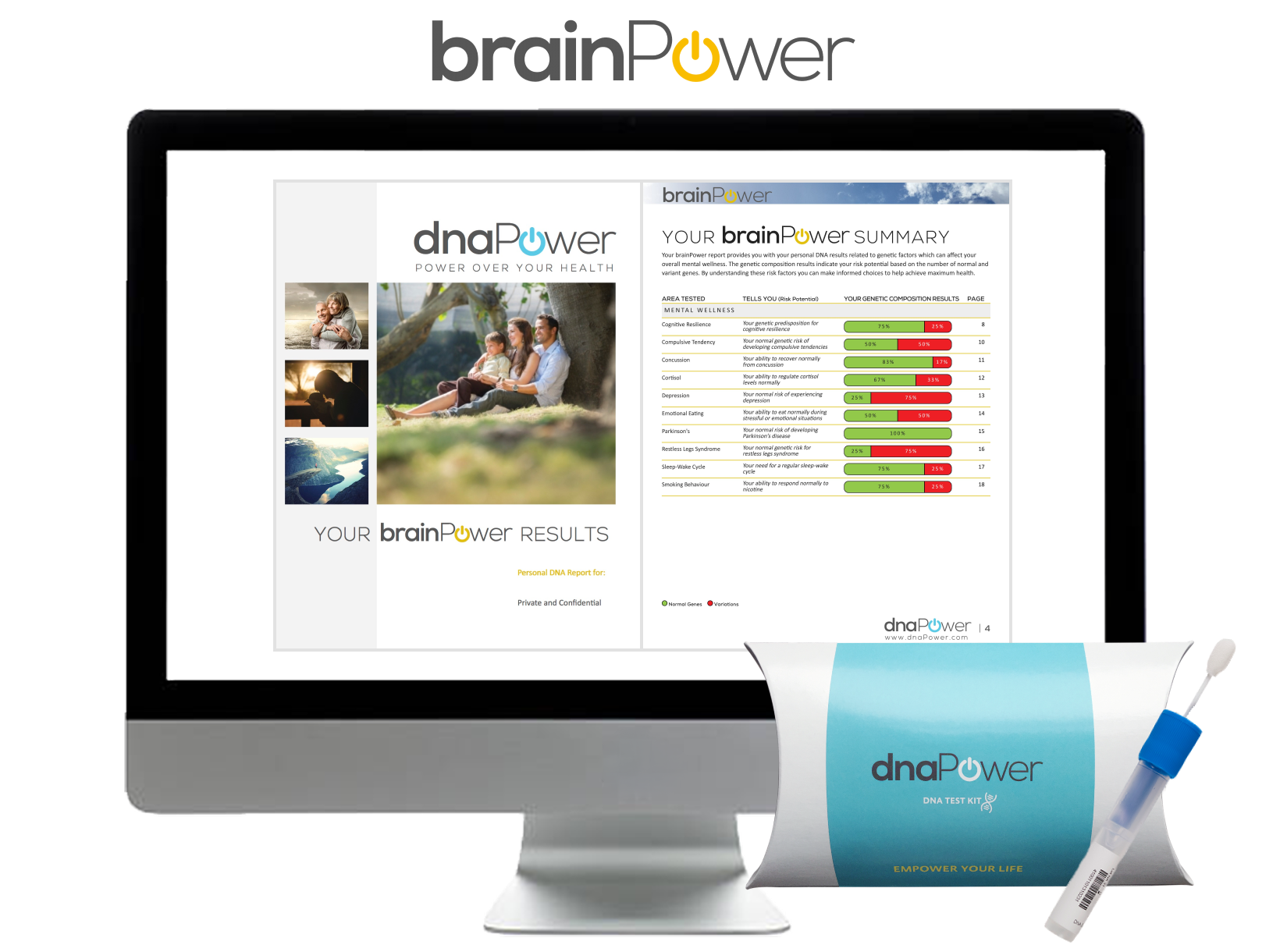
Menopause itself is actually just one single day. It’s the point when you’ve gone 12 consecutive months without a period. Everything leading up to that day is perimenopause, the true transition when hormone levels begin to fluctuate and symptoms often appear. Many women face years of confusing perimenopause symptoms like hot flashes, sleep struggles, mood shifts, and brain fog, often wondering what’s happening to their bodies. The key to navigating this time with confidence is understanding menopause through your DNA.
Your DNA can help reveal why your experience of perimenopause and menopause may feel so different from others and how to best support your body to stay balanced, strong, and vibrant through the journey.

Your DNA is your personal health blueprint. It influences everything from how efficiently your body metabolizes estrogen to how it processes key nutrients like vitamin D, magnesium, and B12.
As estrogen levels naturally decline, your body’s ability to adapt can be influenced by many factors, including lifestyle, environment, and genetics. Genetic testing can help you focus on where your body might benefit most during this transition.
Understanding these variations provides valuable insight into why some women experience more severe symptoms while others transition more smoothly.
The connection between menopause and genetics is clear. Here are five key areas where your DNA plays a crucial role.
Genes involved in estrogen and androgen biosynthesis (such as CYP17A1 and COMT) help determine how much estrogen your body produces and how efficiently it is broken down. Variants in these genes can affect:
What helps: Support your body with a personalized diet plan. Cruciferous vegetables (broccoli, kale), flaxseeds, and adequate fibre can aid estrogen elimination.
The body relies on detoxification pathways to process hormones and manage stress. Genetic variations in genes like GST, SOD2, and MTHFR can make these systems less efficient, leading to fatigue and mood changes.
Poor methylation can also impact your brain chemistry, affecting anxiety and sleep.
What helps: Nutrients such as B12, folate, and magnesium support methylation. Prioritize leafy greens, eggs, and legumes in your diet.
Menopause increases the body’s need for key nutrients, especially vitamin D, calcium, and magnesium. Your genes (like the VDR gene) can influence how well you absorb and use these nutrients, impacting bone density and energy levels.
What helps: Spend time in natural sunlight and include calcium-rich foods like almonds and leafy greens.
When estrogen levels drop, inflammatory pathways can become more active, contributing to joint pain and brain fog. Genetic variations in genes like IL6 or TNF-α can heighten this response.
Chronic low-grade inflammation during menopause has been linked to an increased risk of long-term health issues.
What helps: Adopt an anti-inflammatory diet rich in omega-3s, turmeric, and berries. Consistent physical activity is also key to maintaining good health.
Genes that affect your brain chemistry, like COMT, can influence mood changes during menopause. Women with certain variants may experience greater irritability or anxiety when estrogen levels drop.
What helps: Prioritize sleep, stress reduction, and regular exercise. A holistic approach to your health is the best strategy.
Menopause is not a condition to fix; it’s a transition to navigate with knowledge. Understanding your DNA allows you to take meaningful, personalized action to minimize symptoms.
When you understand your DNA, you can translate that knowledge into practical steps. You can adjust your nutrition, exercise, and lifestyle to support your body’s unique needs. This is where genetic insight becomes so powerful.
Menopause marks the beginning of a new chapter, one of strength, wisdom, and renewal. By aligning your lifestyle with your body’s genetic blueprint, you can move through this transition with clarity and confidence.
Because when you commit to understanding menopause through your DNA, you don’t just survive menopause, you thrive through it.
Author Bio:
Lois Nahirney founded dnaPower after a personal family health journey. She is dedicated to making the science of genetics simple and actionable. Her mission is to empower everyone with the knowledge to control their well-being.

Total Power
CAD $499

Brain Power
CAD $299
Dr. Lois Nahirney founded dnaPower after a personal family health journey. She is dedicated to making the science of genetics simple and actionable. Her mission is to empower everyone with the knowledge to control their well-being.
Get weekly updates on the newest DNA stories, case studies and tips right in your mailbox.